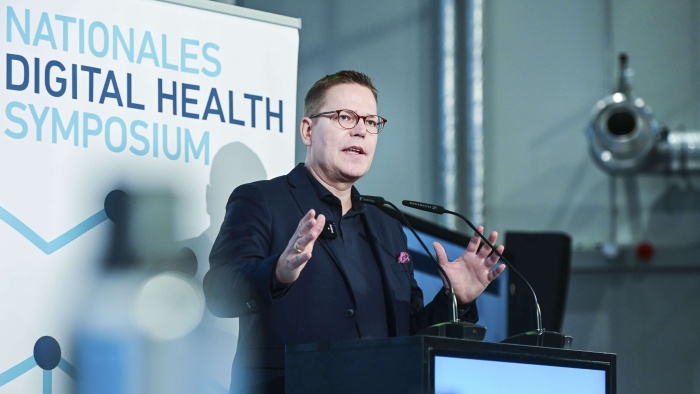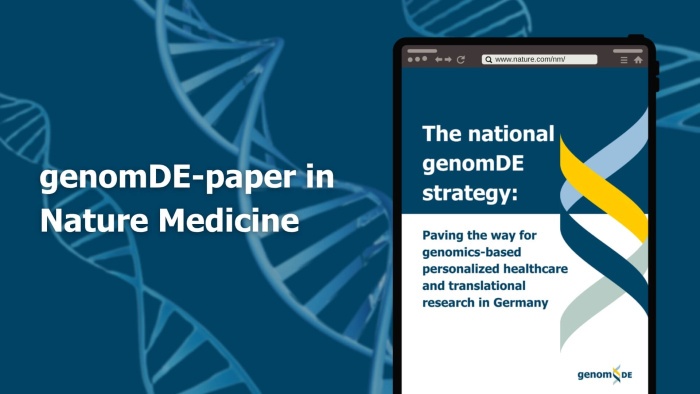A Focus on Genomic Medicine: Over 150 Participants Discussed the Topic of "Genetics and Disease: Care and Research Hand in Hand" at the First genomDE Symposium in Berlin on July 7, 2022
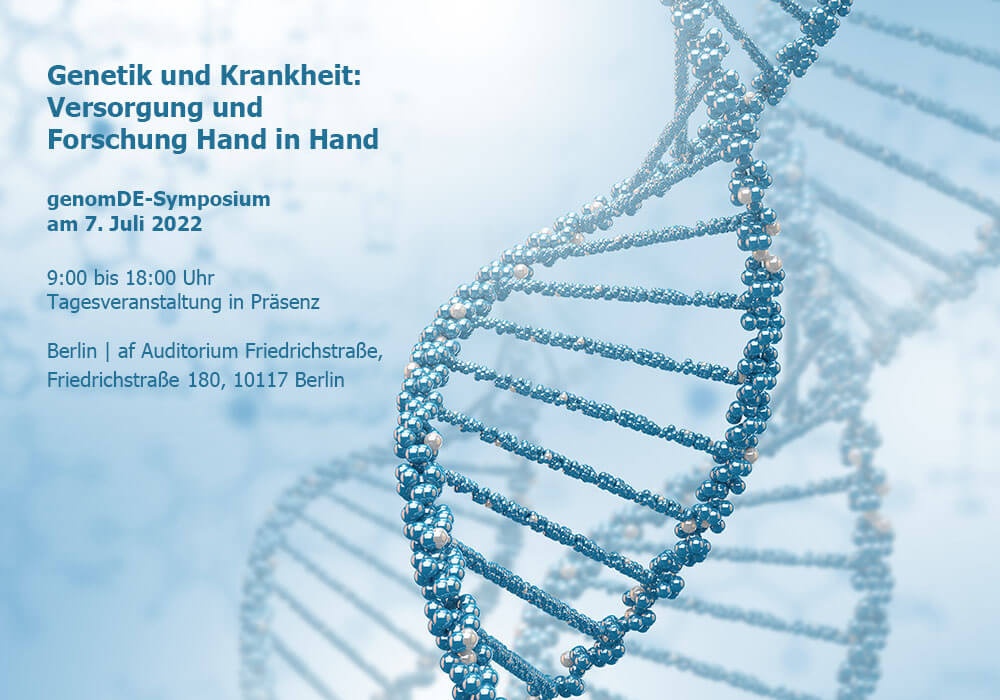
The first genomDE symposium: On July 7, 2022 in the af Auditorium Friedrichstraße, Berlin. © TMF
The Federal Ministry of Health (BMG) has been funding the genomDE project since October 1, 2021. On July 7, representatives of leading medical networks, expert associations, as well as affected patient associations met in Berlin to discuss medical, technical, organizational, and ethical-legal aspects of genomic medicine.
Petra Brakel, head of the sub-department of the Federal Ministry of Health, opened the symposium with her introductory statement. The goal is to advance Germany in terms of genomic medicine through lighthouse initiatives such as genomDE and to make it internationally compatible. In doing so, the focus should always be on people.
One of genomDE's central aims is to improve access for as many patients as possible to meaningful clinical applications of genome sequencing. Thanks to the increasingly efficient and precise analysis of the molecular pathogenesis of diseases, this method enables increasingly more accurate and faster diagnoses, precise predictions of the efficacy and side effects of many therapies, and, in some cases, more targeted disease prevention.
Prof. Dr. Michael Krawczak, UKSH Schleswig-Holstein, Campus Kiel, and Prof. Dr. Hilger Ropers, Director Emeritus at the Max Planck Institute for Molecular Genetics in Berlin, started by giving an overview of the development of genomic medicine and the genesis of genomDE. They presented Genomics England as an international pioneer as well as the early involvement of NAMSE and ACHSE at a national level.
During the panel discussion, Sebastian Claudius Semler, Managing Director of the TMF, emphasized the importance of overarching cooperation between existing initiatives: "The experience and results of the medical informatics initiative and other national initiatives should be incorporated into genomDE. Already established structures in research and healthcare should be brought together in the best possible way, and synergies should be utilized. GenomDE should be a forum where the further development of genomic medicine is gathered together."
GenomDE should be a forum where the further development of genomic medicine is gathered together.
The basis of the genomDE platform will be a knowledge-generating care concept for patients that enables the use of clinical or phenotypic and associated genomic data for individual medical treatment or care. It will also allow research for the further development and continuous improvement of diagnostics and disease therapy.
During the powerful panel discussion with affected patients from the patient representatives involved in genomDE, the focus was mainly on better networking between practicing doctors and patients. Better interdisciplinary cooperation and communication are also necessary. The frequently long path to diagnosis, especially in the case of rare diseases, often resembles an odyssey for the affected patients.
At the panel discussion, Nadine Großmann from Fibrodysplasia Ossificans Progressiva Deutschland (FOP) emphasized: "For rare, monogenetic diseases such as Fibrodysplasia Ossificans Progressiva (FOP), genomDE is extremely important in order to shorten diagnostic paths and, above all, to avoid incorrect treatments that can cause permanent physical damage. Only a genetic test can reliably confirm an FOP disease and has a significant value to those affected and their families."
For rare, monogenetic diseases, genomDE is extremely important in order to shorten diagnosis paths and, above all, to avoid incorrect treatments.
Already established structures, such as the national Network for Genomic Medicine (nNGM) for lung cancer, can also provide an outlook for future practice. Furthermore, according to Prof. Dr. Rita Schmutzler from the Center for Familial Breast and Ovarian Cancer at the University Hospital of Cologne, genomic medicine will offer great opportunities regarding knowledge-generating genomic cancer prevention.
In her presentation, Prof. Dr. Christine Klein from the Institute of Neurogenetics at the University of Lübeck explained the potential of genomic medicine for other diseases, such as Parkinson's disease. Around 10% of cases of this disease are genetically caused, and it is possible to research gene therapies in this area.
During Prof. Dr. Michael Hallek, Clinic I for Internal Medicine, University Hospital Cologne and CIO Aachen Bonn Cologne Düsseldorf's presentations, he explained the necessary elements for knowledge-generating care: In addition to specific knowledge on the respective medical conditions, the inclusion of top translational research at large, networked centers, as well as the creation of further networked structures are vital. Smooth interactions between service providers and research institutions are also essential. Digitization and interoperability of data management are also important components, as well as the reduction of bureaucratic hurdles and special management skills.
During the intense final discussion with the representatives of the health insurance companies, the main topic was financing: Dr. Gerhard Schillinger (AOK Bundesverband), Dr. Ursula Marschall (BARMER), and Dr. Norbert Loskamp (PKV-Verband) pointed out the costs arising of a closer integration of research and care: who will cover them? In addition, the comprehensive research measures to prove the benefits of genome diagnostics within the framework of evaluation measures would have to be financed. This utility aspect would be the basis for its establishment in future care.
Sebastian C. Semler, Managing Director of the TMF, Berlin, came to a positive conclusion and emphasized how important and valuable the personal exchange with all participants at the symposium was.
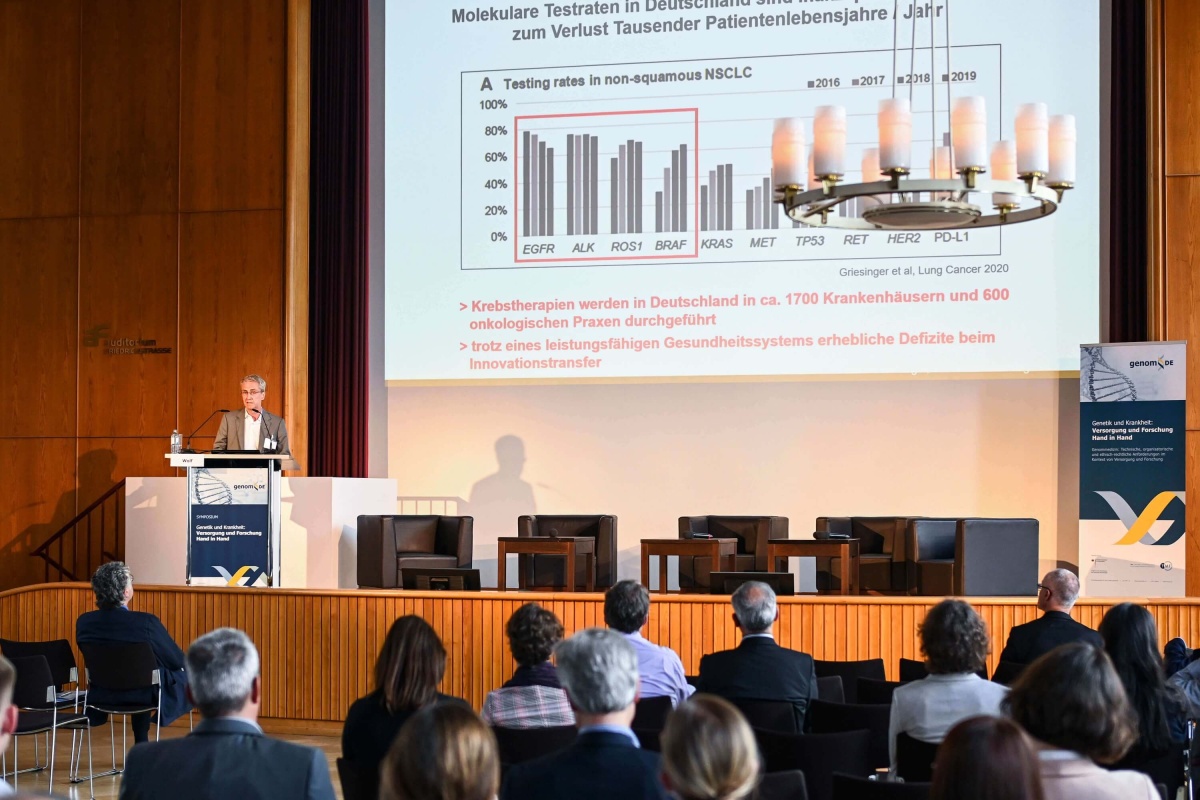
Prof. Dr. Jürgen Wolf held a presentation on "Established care structures and prospects for genomic medicine using the example of the national Network for Genomic Medicine (nNGM) for lung cancer.” © TMF
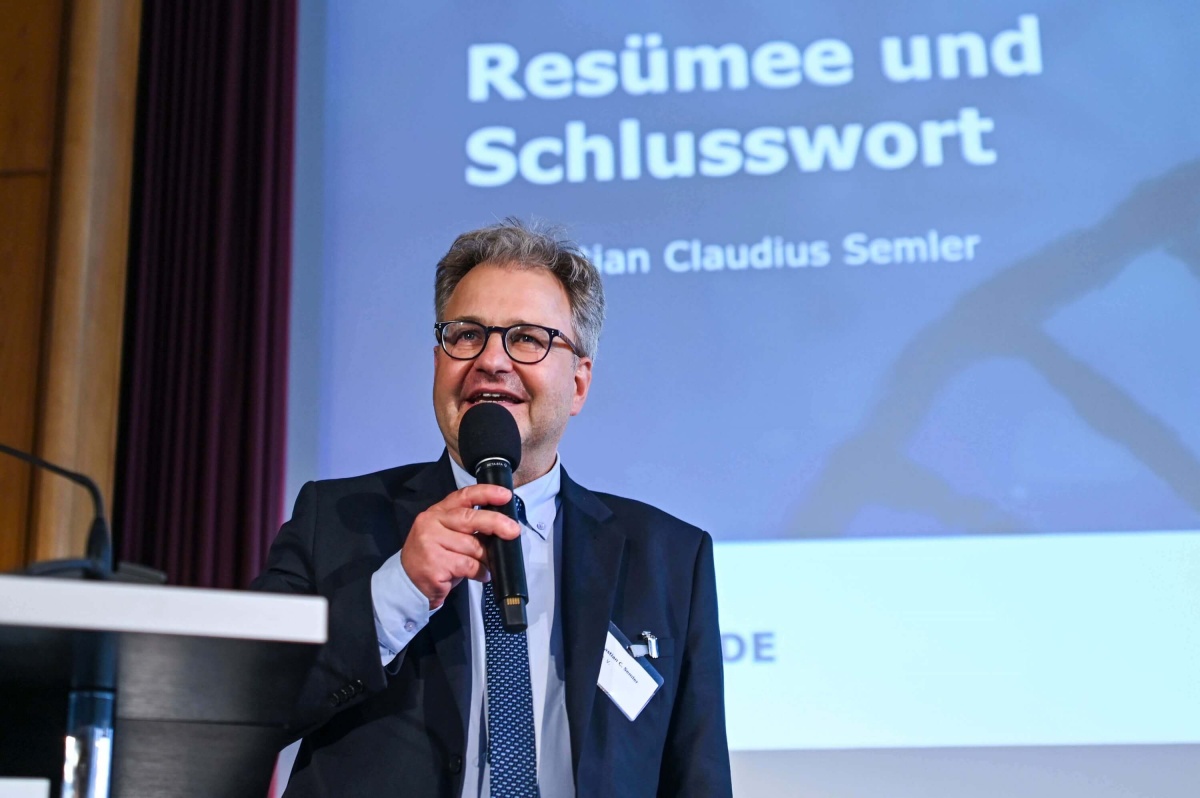
Sebastian C. Semmler, the managing director of the TMF, held the closing speech at the first genomDE Symposium. © TMF
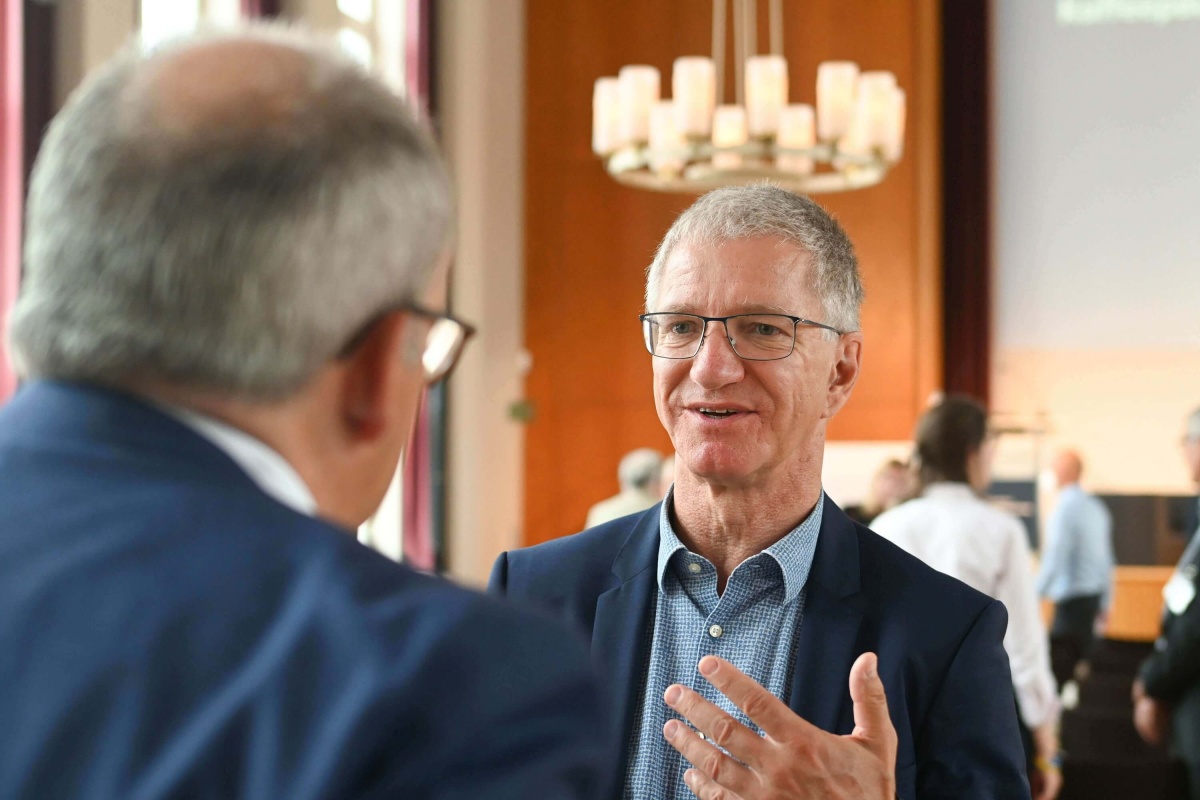
Prof. Dr. Olaf Rieß, director of the Institute of Medical Genetics and Applied Genomics of the University Tübingen. © TMF
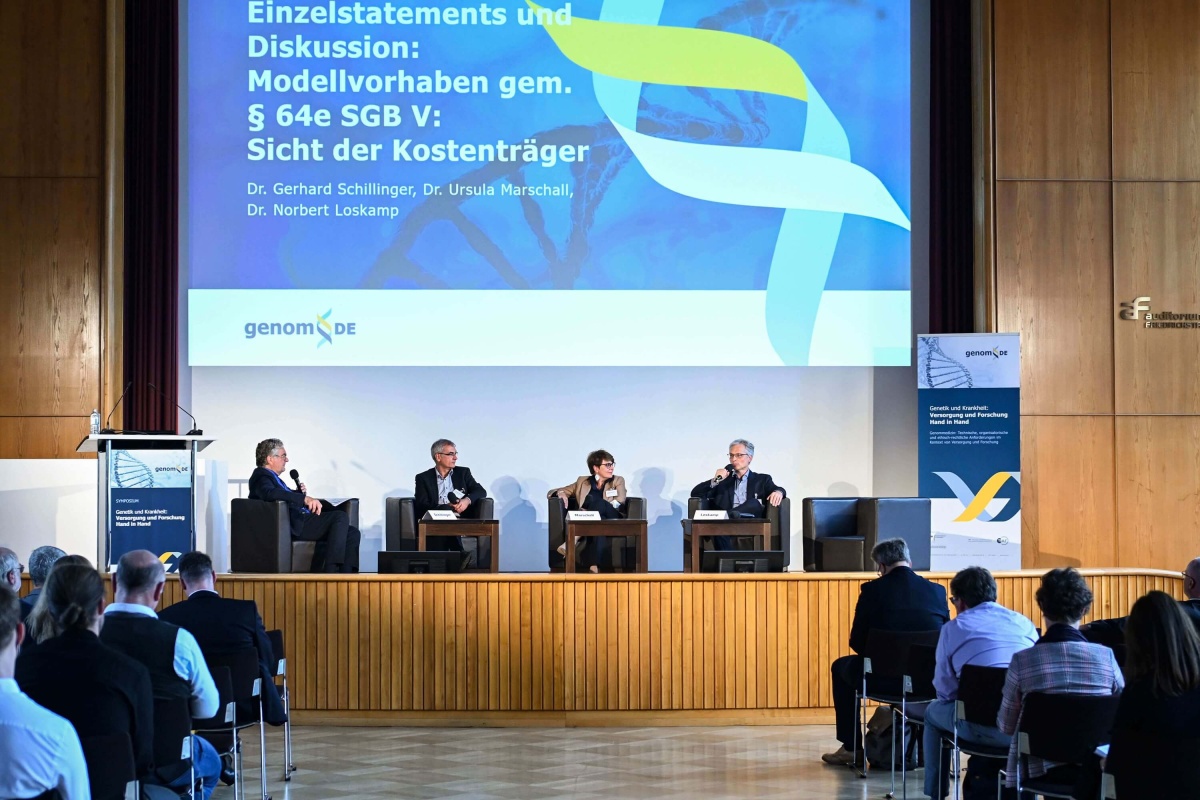
The closing discussion of the genomDE symposium was held by the representatives of health insurance: Dr. Gerhard Schillinger (AOK federal association), Dr. Ursula Marschall (BARMER), and Dr. Norbert Loskamp (PKV-association). © TMF

Prof. Dr. Michael Hallek from the University Hospital Cologne and CIO (Centre of Integrated Oncology) Aachen Bonn Cologne Düsseldorf. © TMF
Further Information
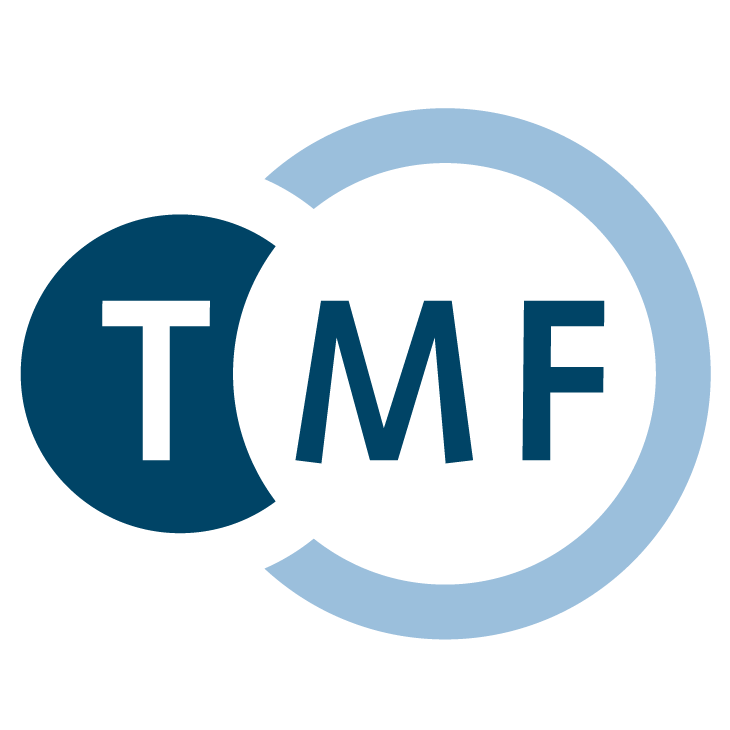
About the TMF
The TMF – Technology and Methods Platform for Networked Medical Research e. V. stands for research, networking and digitisation in medicine. It is the umbrella organisation for collaborative medical research in Germany, within which leading researchers exchange knowledge, jointly develop ideas and concepts, and shape the future of medical research in the digital age.

